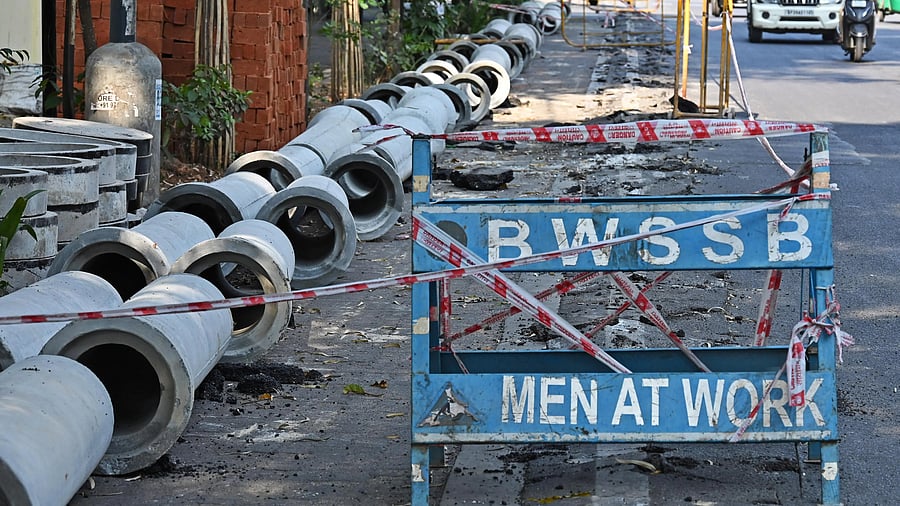
BWSSB revenue can rise by Rs 330 cr
Bengaluru: Reducing water leakages and losses by half could boost the Bangalore Water Supply and Sewerage Board’s (BWSSB) revenue by about Rs 335 crore, a research paper published on IWA Publishing–Water Policy, the official journal of the World Water Council, has found.
The paper, titled 'Building Bengaluru's Water Future: Identifying Challenges and a Strategic Blueprint for Sustainable Management Open Access', also suggests policy and administrative measures to improve the board’s financial health and efficiency.
Currently, Unaccounted for Water (UfW) — water lost due to leakages and illegal connections — is about 30%. If brought down to 5%, the BWSSB revenue could rise by nearly Rs 559 crore, the researchers said.
"Beyond the financial savings, UfW reduction also avoids the environmental and resource depletion costs associated with new water augmentation projects, making it a more sustainable and economically viable solution for water-scarce urban areas,” the paper noted.
The calculations, however, are based on simplified assumptions and do not consider the rising marginal costs of further leakage reduction.
While BWSSB officials pointed to ongoing measures, the paper said the leakage scale calls for more comprehensive action.
"There have been efforts to mitigate some of these losses with regular maintenance, infrastructure upgrades, and advanced monitoring systems. However, the scale of leakage indicates a need for more comprehensive and innovative solutions to enhance the resilience and efficiency of the water supply network,” it stated.
The paper recommended adopting advanced detection systems such as acoustic loggers, ground-penetrating radar, and satellite technology for accurate leak identification.
"Smart sensor installations on the network will allow real-time monitoring of flow and anomaly detection. Regular inspections can determine pipe health and detect potential problems early. Besides this, specialised rapid response teams must be deployed to plug leaks at the earliest, minimising wastage of water,” the researchers suggested.